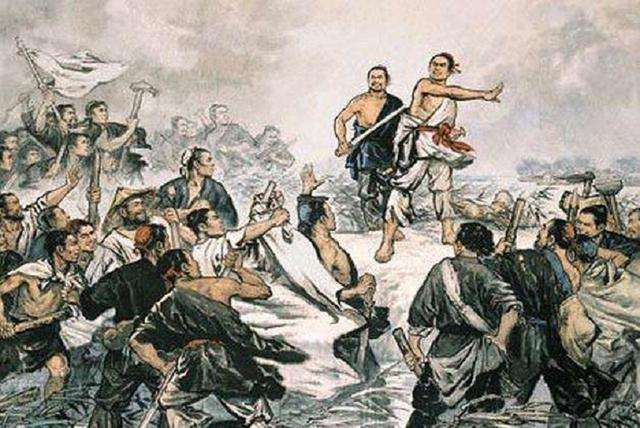Chen Sheng Leader of first peasant rebellion
3 min readAfter Qin Shi Huang united China and established the Qin Dynasty in 221 BC, the country became one of the most powerful empires in the world at that time. However, following the sudden death of the first emperor, the dynasty fell into chaos under the rule of Hu Hai, the second emperor.
Because of the brutal oppression of the centralized regime, there were widespread resentment and hatred against Qin rule. Thousands of disgruntled peasants, prisoners and descendants of the nobles of the former warring states that were annihilated by Qin Shi Huang, were lurking in every corner of the country waiting for an opportunity to destroy the Qin regime. But no one dared to raise the first flag of rebellion in fear of the strong Qin armies.
Finally, however,a man called Chen Sheng, along with his comrade-in-arms Wu Guang, stood up and called the first shot of rebellion, which eventually led to the collapse of the Qin Dynasty in 206 BC.
Chen, born into a poor peasant family in today’s He’ nan Province, became a military captain in 209 BC. In the summer of that year, he and Wu were leading 900 soldiers to Yuyang in the north to help in border defense.
However, due to heavy rainstorms and flooding, they were stranded half way and it became clear that they could not arrive in time. But, according to Qin’s strict law, if soldiers missed a deadline, they would be executed regardless of the reason for the delay. Since they were already “half dead,”Chen and Wu decided to lead their soldiers into a rebellion.

To convince the 900 men of the legitimacy of the rebel-lion, Chen and Wu inserted a message written on a piece of cloth into a fish’s mouth and put it into a soldier’s fishnet.
When soldiers found the message, which said Chen was “the king,”they believed it was god’s will.
Soon, thousands of peasants and Qin soldiers from otherareas joined Chen and Wu. Their ranks grew to more than 100,000 men. Chen sent out several generals to attack Qin ter-ritories and areas of the former warring states.Meanwhile,he declared himself the King of Chu.
Chen’s rebellion was short-lived.His generals were even-tually either defeated by the Qin army or deserted and set up their own regimes.Six months later,Chen was assassinated by his guard.
But numerous other rebellions against Qin rule,kindled by Chen’s uprising,continued and in less than two years the Qin regime was overthrown.
Chen,as the leader of the first peasant uprising in Chinese history,later became an icon of rebellion against oppression and totalitarian regimes.His bravery and spirit of revolt later inspired tons of folk stories,operas and poems.Chen had also coined many popular proverbs and sayings that have been re-peated for more than 2,000 years.
One of Chen’s proverbs was created when he was a day laborer working in the fields.During a break,he told his fellow laborers that he would not forget them once he became rich.The others laughed at him,saying:”You are but a day laborer like us,what riches are you talking about?”Chen replied:“How can a sparrow understand the lofty aspirations of a swan?”
He also said:”If a heroic man’s going to die,he must die for a great cause that will bring him big fame.Who says kings,generals,dukes and ministers are born blue-blooded?”And the image of Chen holding high a bamboo pole as the banner of rebellion was later epitomized into a Chinese idiom,(jie gan er qi),which means“to rise in rebellion,usually with great courage and rudimentary weapons.”
Many of Chen’s sayings were widely quoted during the “cultural revolution”(1966-1976)in the media and in heated debates to fuel the spirit of rebellion among students and sup-porters of the political movement.








